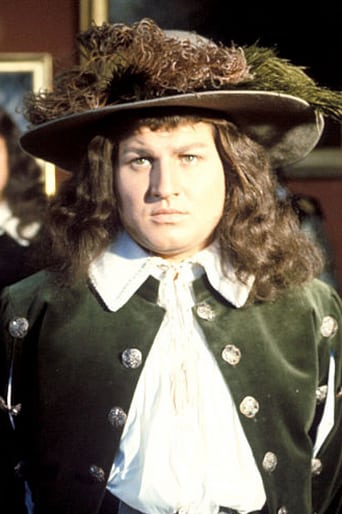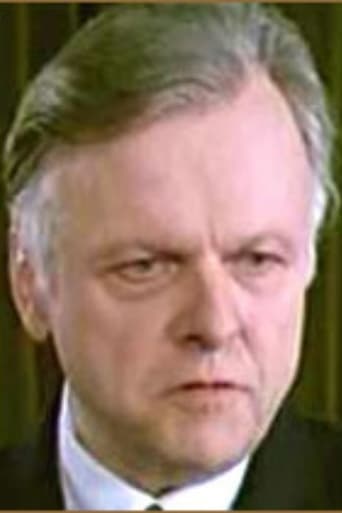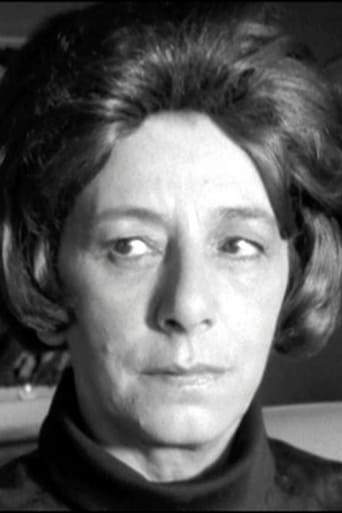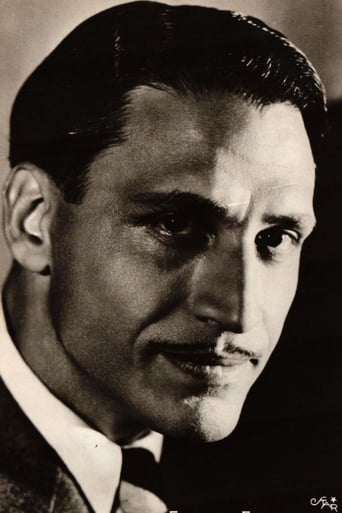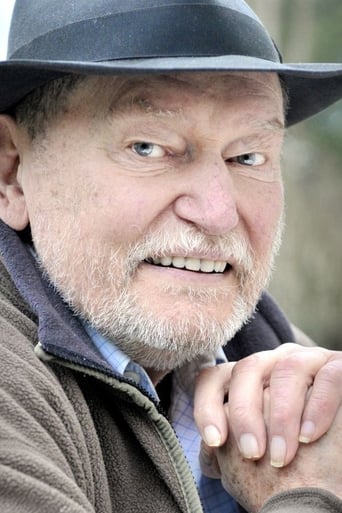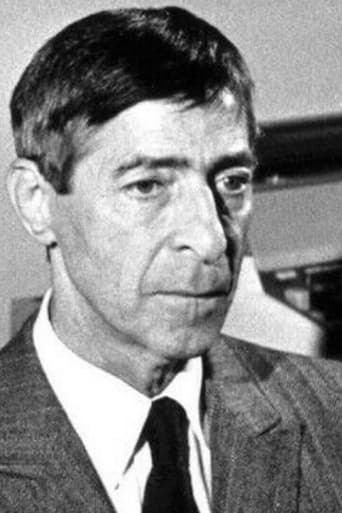Protraph
Lack of good storyline.
Comwayon
A Disappointing Continuation
Stoutor
It's not great by any means, but it's a pretty good movie that didn't leave me filled with regret for investing time in it.
Francene Odetta
It's simply great fun, a winsome film and an occasionally over-the-top luxury fantasy that never flags.
MisterWhiplash
It doesn't seem to be the same filmmaker; at first, if one were to say that this, The Taking of Power by Louis the XIV, were directed by the same man who lensed the "post-war" trilogy of Open City, Paisan and Germany Year Zero, without looking at the credits in the opening minutes, I would say you were mad. It looks stiff, at first, without the same bursts of passion and rugged documentary style that highlighted those films, or the passions of the films he made with his wife, Ingrid Bergman.But sticking with the film, the look and what is revealed with every little glance, every head turn, every cut away or motion to move, reveals a filmmaker who is in fact creating a film with immense conflict, taking an eye on a historical figure who was filled with fear, so much so that it drove him to be a cold force of domination in France. Louis (non-professional actor Jean-Marie Patte) doesn't really trust anyone, not even his mother, the Queen, and it's curious that Rossellini doesn't even feature him until nearly fifteen minutes into the 95 minute running time (at first the film looks to be about a Cardinal, played by the very convincing Silvagni, on his death bed). But, again, sticking with it, we see a tale of a King who could take a hold of power not by getting into hysterics or enraged, but by a stare and way of looking and speaking, out of beady eyes and a toneless baritone.This is in some part an odd credit to Patte, who in move not unlike Robert Bresson was chosen as a first-time actor and apparently never went again in front of the lens. Indeed he looks nervous in front of the camera, and unlike Bresson Rossellini, who according to the DVD notes had only a budget of the equivalent today of 20 grand (that's right folks, 20 grand) and about three weeks to shoot it in, didn't have the time or patience to break down his actor with so many takes. In a way this is a very clever move by Rossellini, but it works to even further an objective that might have been lost or not really met by a "better" actor. I'm almost reminded of a stiffer, less bad-jokey George W. Bush in this Louis XIV, a character who everybody in his council and company pays heed to, even if they don't take him much seriously - at first, anyway.The film also is shot gorgeously, but not always in a manner to get your attention. While Rossellini navigates the story, of Louis facing down a traitor in his ranks, Fouquet (Pierre Barrat) and takes hold as a King who takes his advice from a very small knit group, he stages scenes without a trace of melodrama. In his own way Rossellini is still practicing his own form of neo-realism, only instead of on the streets its in the royal palaces and banquet halls, the fields where the dogs are let loose on hunting day, the meals prepared with a documentary-style precision. Except for one crane shot (ironically directed by Rossellini's son, Renzo, on a day he wasn't there to shoot), it's shot with the simplicity of a filmmaker who trusts his craft so innately that he doesn't need to second guess himself, whether it's in a very tense scene where all the drama is boiling under the surface (or erupting, as happens once or twice between Louis and his mother Queen) or those shots panning across the royal courtyard towards the end.It should be noted, that this is for those with a taste for historical-period dramas, and admirers of the filmmaker. If you're made to watch this in a class without much interest beforehand, it might not be easygoing. Yet for the acquired taste it is compelling cinema, shot for TV but made with a taste for storytelling meant to be seen on a screen that can be seen every look of horror on Patte's face or moment where the colors and costumes and sets seem to threaten to overwhelm the "protagonist". It's not Coppola's Marie-Antoinette, that's for sure.
oOgiandujaOo_and_Eddy_Merckx
The story starts with the death of Cardinal Mazarin, who has been the de facto ruler of France for some time. Louis, until this point, content to frolic with mistresses and indulge in the arts, decides to take up the reins of state, much to the astonishment of the court. His mother has been waiting for this opportunity to once again become influential in affairs of state and is looking to place her man the Marquis de Tellier as prime minister. Louis clearly loves his mother very much, however decides that she should not attend the council of ministers and takes Colbert, the steward of Mazarin as his right hand. The film portrays Colbert as someone recommended to Louis by Mazarin on his deathbed. I think this is probably misleading, as, from my short readings on the subject Colbert was already well known to Louis.Louis decides upon a route and branch restructuring of governance in France. He is haunted by an event from his childhood known as The Fronde, a sort of 17th century civil war that had almost claimed his life and had reduced parts of the country to brigandage. He decided on a pretty much totalitarian solution, which the historians refer to as absolutism, to become the "Sun" of France. That is, all affairs in France would be run by Louis, all citizens and nobles would derive their worth from Louis, just as nature derives all things from the sun. He believed that this was the natural order of things as ordained by God.His mother and her agenda is not needed for this revolution. There's a quite touching scene between Louis and his maman where he is clearly pained at what he's doing to her (almost like sending her off to the old folks home).He moves the entire court from Paris to Versailles (which undergoes a huge revamp), and institutes a preposterous new dress code. Not only that, but he requires the nobles to leave their estates and permanently reside in Versailles. Louis also wants to calm the people and sets Colbert a reformist agenda that will aim to lower taxes and reduce dependence on foreign manufacturers.The reign of Louis XIV reminded me of the reign of Amenhotep IV (later called Akhenaten, or the servant of Aten), the pharaoh of Egypt who moved his entire court from Thebes out to a newly constructed city, Amarna, and attempted to totally erase the old religions in favour of the monotheistic worship of Aten, the sun.I felt the film was very energising from the start, in Louis here was a man who wanted to change France. We're shown that he is just a man like the rest of us, in his bed chamber he leads his courtiers in prayer, which he forgets halfway through, and has to mumble. Towards the end we see him alone in a chamber reading a book, learning like the rest of us.Some people may not like this movie because the whole is very deadpan, which I feel is very realistic, but if you like a passionate French period drama like La Reine Margot, well this is very different. It seemed a very painterly movie, a lot of effort had been gone to with composition and the camera was very static. The costumes got pretty dreadful towards the end of the movie, Louis insisted on an overload of ribbons and lace, like he's setting out to humiliate his entire court.So here we had a man, pharaoh, who decided to fashion his world in his manner, with the assurance of a sleepwalker. It is hard to judge him, it's hard for me to see the events as anything other than a page in history's baroque miscellany.It's absolutely fascinating and has awoken in me an urge to find out more about the subject. Rossellini created a series of these films for television apparently he believed that television should be pedagogic. He was against barbarism. Note the very careful use of words, not learning or philistinism, pedagogy and barbarism. Luckily for him he's not around today to see what has become of TV.
unclepaulcwr
A short movie that does an excellent job in conveying the gestalt of one of the most important moments in modern (post-renaissance) French history: the events leading up to the building of Versailles. One understands The Sun King in his context: a man whose hold on his crown -- and his life -- was at first shaky at best. Louis is understood in the context of his greater 'family', in particular the unfortunate Stewarts on the other side of La Manche. Not wanting to be subject to the same fate as his uncle, Charles I (who, for those of you who don't know, was overthrown by his Parliament and nobles, and then beheaded by the fanatically Puritan Oliver Cromwell) Louis conceives of Versailles as essentially a pretty prison for the nobility: by mandating their attendance at court they cannot conspire to overthrow him. Moreover, he establishes absurd rituals of etiquette and ludicrous costumes (the male peruke (wig) was introduced at this time) in order keep them bankrupt attempting to stay on top of court fashions.
jacksflicks
Apply cinema verité to an historical setting and You Are There. Rossellini succeeds in slowing the pace, but rather than making it feel slow, he makes it feel majestic, as it should be in a story about a king. Likewise, he makes the dialog conversational à la Hawks. The locations are authentic, as are the costumes and customs, thus completing the illusion.In Olivier's Henry V, we see how a one becomes a feudal king; in The Rise of Louis XIV, we see how one becomes a Sun King.
